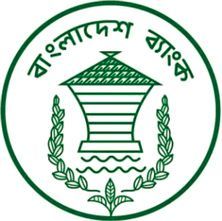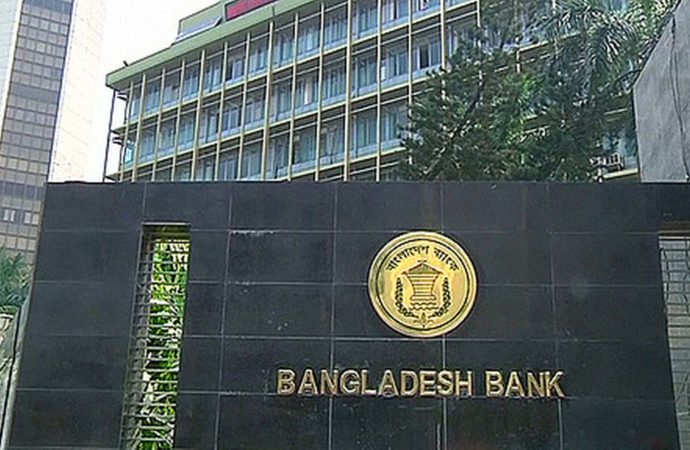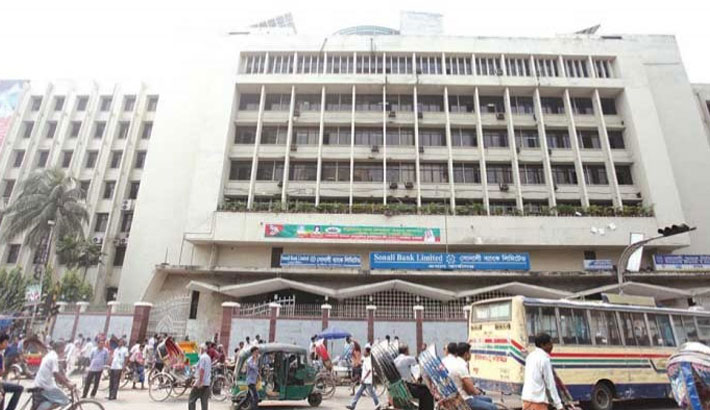BB probe detects anomalies in financials of First Finance
The central bank has recently detected anomalies of serious nature in the annual financials of the First Finance Ltd, a listed non-banking financial institution (NBFI).
The NBFI in question allegedly resorted to doctoring of the financial statements with a view to announcing 5.0 per cent stock dividends for the shareholders for the calendar year 2016.
 However, scrutiny of audited balance sheet, profit and loss accounts, statement of analysis for provision of interest expense and relevant other documents revealed a number of inconsistencies/ anomalies.
However, scrutiny of audited balance sheet, profit and loss accounts, statement of analysis for provision of interest expense and relevant other documents revealed a number of inconsistencies/ anomalies.
In a letter issued on 14 June, BB said that it was mandatory for the NBFIs to get no objection certificate from BB before announcing dividend if the non-performing loan (NPL) was 10 per cent or higher.
First Finance Ltd posted the announcement of dividend on the DSE website on April 30 this year despite having 33 per cent NPL. It also did not take 'no objection' certificate from the central bank.
The BB accused the company of violating the Financial Institution Act of 1993. It also served show-cause notices on the managing director, chief financial officer (CFO) and company secretary and asked them to submit their replies within seven days.
However, the BB issued no-objection certificate to the First Finance to disburse 5.0 per cent stock dividend under 'special consideration'.
First Finance Ltd which was a 'z' category company in the stock market was upgraded to 'b' category following the announcement of the latest stock dividend. The company was listed on bourses in 2003. The closing price of the issue on Monday was Tk 11.50 on the DSE.
In its balance sheet and profit-loss statement for the year 2016, First Finance showed the retained earnings and net profit at Tk 63.64 million and Tk 50.12 million respectively. But the retained earnings shown in the profit-loss statement submitted with the 'Analysis for Provision of Interest Expense' was in the negative. The retained earnings in the latter case were minus Tk 24.72 million.
The BB also found that First Finance has shown Tk 1.86 million as interest payable against a term deposit totalling Tk 5.52 billion. The actual amount of payable interest will be Tk 243.34 million. It is a clear violation of article 27 of the International Accounting Standards and the Bangladesh Accounting Standards, the central bank in its letter said.
The central bank also said that the First Finance violated the article 10 of Financial Institution Act 1993 while announcing dividend despite having negative retained earnings.
While contacted, a senior BB official told the FE that the central bank has given conditional approval to the company to give 5.0 per cent dividend.
Regarding the anomalies, First Finance senior executive vice president and consultant Mr Mansur said the dividend has been approved by the board where an observer from BB was also present.
'I don't want to comment as the proposal was submitted to the board and approved by it with BB observer present there,' he said.
There was no inconsistency rather there was shortfall in the provision worth Tk 63 million.
"If we could give the dividend the shareholders would have been the gainers," he said, adding: there is neither any issue of hiding nor stealing.
In the meanwhile, following a writ petition filed by some shareholders, a High Court Division bench has stayed the holding of the annual general meeting (AGM) by the First Finance, scheduled for June 15 last, for a period of six months.
Govt bank borrowing falls by Tk25,000cr in 2 years

The government repaid loans worth Tk19,629 crore during the year which ended on June 30
Bangladesh government’s borrowing from the banking system has declined by around Tk25,000 crore since fiscal year 2014-15, according to the latest Bangladesh Bank data.
At the end of the fiscal year 2016-17, the total amount of the government loans from banks stood at Tk90,660 crore compared to Tk1,15,000 crore at the end of the FY2014-15.
The data showed that the government did not take any loans during the last fiscal year against its borrowing target of Tk38,338 crore. Instead, the government repaid loans worth Tk19,629 crore during the year which ended on June 30.
The government was set to borrow Tk28,203 crore from the banking system to meet the possible budget deficit of the current fiscal year’s budget. The government fixed a budget of Tk4,00,266 crore for the current FY2017-18.
Usually, the government borrows from the central bank and other commercial banks to meet budget deficit. The government also sell saving certificates to meet the deficit. But the saving instruments are now costlier than bank borrowing.
The government can take short-term loans from banks at 2.86% interest rate and long-term loans at less than 7% interest rate, but it is paying 11.04%-11.76% interest rates against saving certificates.
According to banking sector analysts, the government borrowing from banks has decreased due to the rise in the sale of saving certificates.
According to the latest data of National Savings Department (NSD), from July to May of the concluded fiscal year, the government had sold saving certificates amounting to Tk46,967 crore while the target set for the fiscal year was Tk19,610 crore.
In May 2017, the sale of saving certificates amounted to Tk4,869 crore, a figure that was Tk1,264 crore higher than the amount a year ago. The saving instruments sold in May, 2016 were worth Tk3,605 crore.
In May 2017 alone, the government sold NSC of Tk4,869 crore while the sales in June were expected to be doubled, the NSD officials apprehended.
Experts suggest the government borrow from banks as the option is more cost-effective than saving certificates to meet the budget deficit.
They slammed the government for its reliance on the sale saving certificates to meet budget deficit.
“If you look at the bank loan interest rates, they are almost half the rate of the saving certificates,” Biru Paksha Paul, former chief economist of Bangladesh Bank, told the Dhaka Tribune.
Paul said dependence on the NSC over bank borrowing is “destructive” for the government.
He also emphasised that the government should decrease the interest rates against saving certificates and borrow from banks to address the budget deficit.
news:dhaka tribune/12-jul-2017Bad loans soar in state banks

The state-run banks have been struggling with piles of default loans due to administrative weakness and poor supervision on loans, bankers and financial analysts have said.
Finance Minister AMA Muhith recently informed Parliament that the amount of default loans in state-run banks stood at Tk 111,347 crore (Tk 1.11 trillion) till the end of April this year.
He also disclosed the list of the country’s top 100 loan defaulters in the House.
“We have found that the state-owned banks rescheduled loans amounting to Tk 13,000 crore in last nine years.
They didn’t take any action against the defaulters as well as the bankers involved in loan scams,” Hossain Zillur Rahaman, former adviser to a caretaker government, told the daily sun.
Earlier this month, UK-based financial watchdog Economist Intelligence Unit (EIU) reported that limited action has been taken to punish the defaulters, improve risk management and strengthen bank management in Bangladesh.
There are eight state-run banks in Bangladesh, including Sonali Bank, Rupali Bank, Agrani Bank, Janata Bank, Basic Bank, Bangladesh Development, Bangladesh Krishi Bank and Rajshahi Krishi Unnayan Bank.
The state-run banks are suffering from poor risk management, EIU said in its report titled “Banking sector faces challenge”.
The report also said poor risk management system contributes to a high level of non-performing loans, low profitability, large capital shortfalls and balance sheet weaknesses of the banks.
Referring to the non-performing loans in the state-run banks, Centre for Policy Dialogue (CPD) Distinguished Fellow Professor Mustafizur Rahman pointed to three factors behind the increasing NPLs– administrative weakness, lack of legal approach and political wishes.
“The overall economy is moving through a challenging state. The figure of bad loans we learnt from parliament is less than the ‘real figure’ as well as the big fishes stay out of the list of the finance minister,” Prof Mustafizur Rahman told daily sun on Tuesday.
He also observed that the widespread rescheduling of the bad loans is creating a burden for the small borrowers by pushing up the real interest rates. Between January and March this year, overall bad loans in the banking sector rose by 18 percent from the previous quarter to Tk 734.1 billion while NPLs in six state-owned banks rose by 15.1 percent quarter-on-quarter to Tk 357.2 billion.
news:daily sun/12-jul-2017Media exaggerated reports on deposits with Swiss banks
Finance Minister Abul Maal Abdul Muhith on Tuesday told parliament that media reports on the amount of money deposited by Bangladeshi nationals with Swiss banks were an exaggeration.
“I won’t deny that money has been laundered. The amount is too little.
But the way the media reported was exaggerated,” he said.
“The issue of money laundering is not a serious matter. It is a part of transactions and account of wealth,” the finance minister told the House.
Media reports mentioned that deposits by Bangladeshis with Switzerland’s banks rose by about 20 percent in 2016.
The amount rose to 661.96 million Swiss francs or Tk 55.86 billion in 2016 from 550.85 million francs in the previous year, according to data released by Swiss National Bank.
The Zurich-based SNB published the data in its annual report titled ‘Banks in Switzerland 2016’.
The money deposited by Bangladeshis with Swiss banks totalled around 506.05m francs in 2014.
The total funds held by all foreign clients of Swiss banks also rose to 1.42 trillion francs in 2016 from 1.41 trillion francs a year ago.
“We do have enough businesses in Switzerland. The banking system in Switzerland is much developed. As a result, transactions of country’s businesses were made through Swiss banks,” he said.
The minister said the media widely published incidents of money laundering to Swiss banks.
“Giving importance to the matter, Bangladesh Bank collected additional information and prepared a report based on it,” he said.
Analysing the reports of 2013-14, 2014 and 2016, it was observed that some transactions were made due to the country’s businesses with Switzerland.
“The analysis of Bangladesh Bank shows that the businesses through banks between Bangladesh and Switzerland increased significantly. Practically it is not a money laundering. I believe the explanation will help reduce the misunderstanding,” he said.
news:daily sun/12-jun-2017Germany's FM urges fresh bank rules after Italy crisis
German Finance Minister Wolfgang Schaeuble on Monday warned that eurozone banking rules required reform, amid criticism that recent rescues of Italian banks failed to heed the lessons of the financial crisis.
European regulators have come under fire for allowing Rome to use taxpayer money to save two small Italian banks, Veneto Banca and Banca Popolare di Vicenza.
The EU-approved operation could cost the Italian state up to 17 billion euros ($19 billion).
"In light of recent events, we need to look closely at whether our tools are sufficient, if they are effective and if we can do more," said Schaeuble, the eurozone's most influential finance minister, as he arrived for talks with his counterparts from the 19-country single currency bloc.
Schaeuble said he regretted the disparity between national rules and the far tougher European rules that only apply to eurozone's biggest lenders.
"We must have a discussion on how we can change that in the future," he said.
In the bailout, the two failing lenders' healthy assets are to be sold to Intesa Sanpaolo, Italy's strongest bank, for a symbolic price of one euro.
Last week Brussels also approved the bailout of another troubled Italian bank, Monte dei Paschi di Siena (BMPS), in a 5.4-billion-euro deal.



